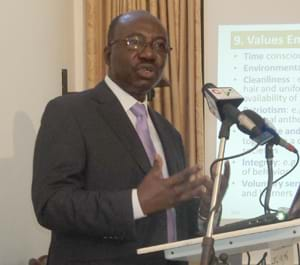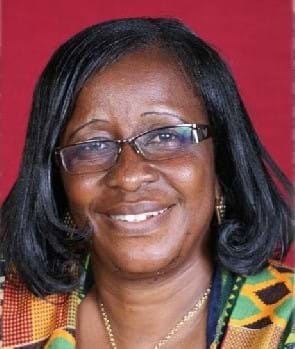Dr. George Afeti, Chief Inspector of Schools at the newly established National Inspectorate Board (NIB) of the Ministry of Education, said there will be no duplication of functions as far as supervision and evaluation of schools are concerned, as he dropped the hint of possibly pushing teachers’ retiring age to 65 years.
Observers have expressed worry that the establishment of the NIB will further complicate the way and manner public and private pre-tertiary education in the country are monitored as the Ghana Education Service (GES) already has an Inspectorate Unit that performs a similar function.
However, Dr. Afeti insists that there is no cause for alarm because the NIB has specifically been established under the new Education Act (Act 778 of 2008) to “provide an independent external evaluation of the quality and standards in both public and private pre-tertiary educational institution.”
At the board’s maiden news conference at the premises of the erstwhile Local Organizing Committee (LOC) for the 2008 African Cup of Nations in Accra, Dr. Afeti was optimistic that the board’s recommendations would be enforceable to help to uplift the standard of basic education in the country.
He said the board had been mandated to help improve the quality of teaching and learning in schools, and added that it was expected to provide diagnosis of what a school must do to improve, looking out particularly for specific interventions required for quality improvements throughout the country.
Dr. Afeti, who is a former Rector of Ho Polytechnic, said the board also had the mandate to undertake periodic inspection of schools, make and enforce recommendations, evaluate the quality of teaching and learning and enforce quality standards that must be observed at the pre-tertiary level.
He said whilst the GES Inspectorate Division conducted “internal” inspections, his outfit would carry out “external” inspection and evaluation of the system, adding, “The board will provide independent summative evaluations of schools’ performance and make recommendations for improvement.”
Dr. Afeti said currently, the board was expected to cover about 48,000 schools nationwide, adding that it would employ only 20 highly qualified staff as supervisors, as well as 300 experienced retired educationists on a work-and-pay basis, to support the 20.
He said currently, close to half of the teacher population in the country was not professionally trained and that accounted for the shortfall of the teacher/pupil ratio, adding, “Schooling has gone up due to social laudable interventions such as Capitation Grant, School Feeding, free textbooks and uniforms, but teaching is suffering.”
He said problems associated with the work of teaching needed urgent attention if the standards and quality of teaching and learning were to improve, saying, “Sometimes, the public should not be too quick to blame the teachers because there are real problems confronting their work.”
Dr. Afeti noted that they would look into whether the retirement age for teachers, which is currently pegged at 60, should be changed to 65 because most of the teachers who were retiring at 60 still had extraordinary skills the country could benefit from.
He promised independence and transparency in the work of the board, adding, “Our role is not only to advise on what must be done, but also apply sanctions where necessary.”
Source: Daily Guide-Ghana








